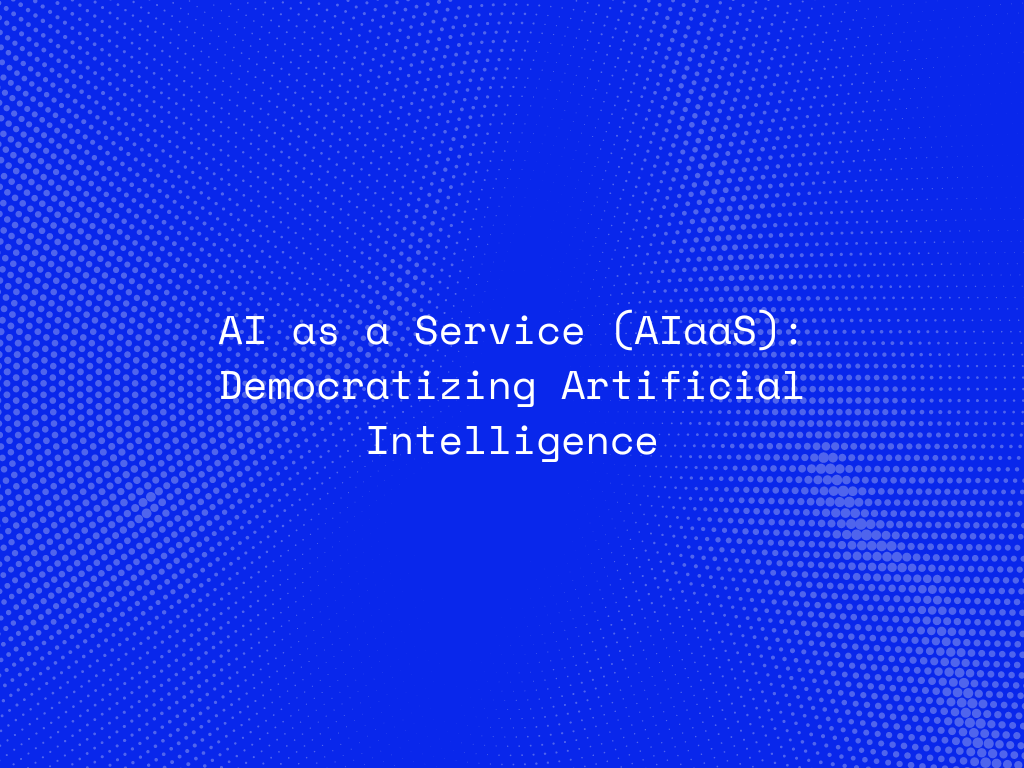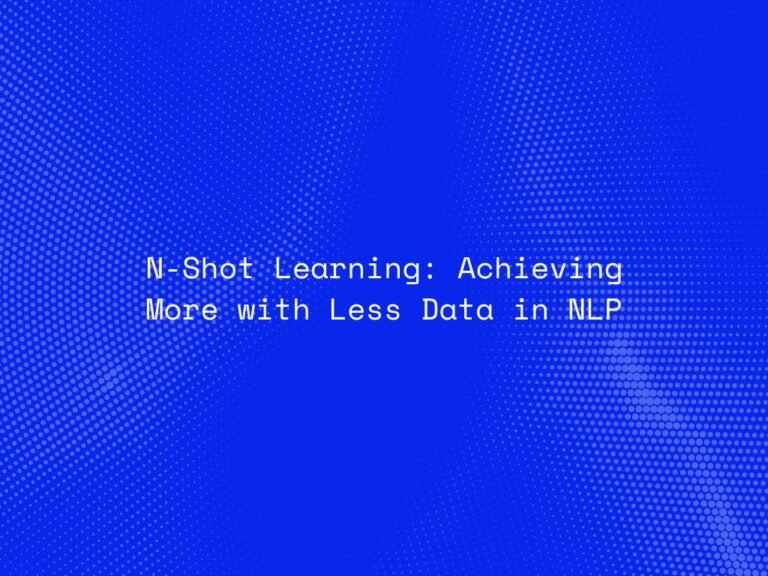Artificial Intelligence as a Service (AIaaS) is revolutionizing the way businesses and individuals access and utilize AI technologies. By providing AI capabilities through cloud-based platforms, AIaaS democratizes artificial intelligence, making it accessible to organizations of all sizes and sectors. This blog explores the concept of AIaaS, its benefits, applications, and the future of this transformative technology.
What is AI as a Service (AIaaS)?
AIaaS is a cloud-based service that provides AI tools and frameworks as part of a subscription-based or pay-per-use model. These services allow users to integrate AI functionalities into their applications without the need for extensive in-house expertise or infrastructure. AIaaS includes offerings like machine learning (ML), natural language processing (NLP), computer vision, and more.
Benefits of AIaaS
Accessibility and Affordability
AIaaS makes advanced AI technologies accessible to businesses and developers who may lack the resources to build and maintain AI infrastructure. By offering AI tools on a subscription or pay-per-use basis, AIaaS reduces the financial and technical barriers to entry.
Scalability
AIaaS platforms are highly scalable, allowing businesses to scale their AI capabilities up or down based on demand. This flexibility ensures that organizations can manage costs effectively while meeting their AI needs.
Speed and Efficiency
AIaaS accelerates the deployment of AI solutions by providing pre-built models, tools, and APIs. This reduces the time and effort required to develop and integrate AI functionalities, enabling faster time-to-market for AI-powered applications.
Continuous Updates and Innovation
AIaaS providers continually update their platforms with the latest advancements in AI technology. This ensures that users have access to cutting-edge tools and frameworks without the need for ongoing investment in R&D.
Connect With Us
Key AIaaS Providers
Amazon Web Services (AWS)
AWS offers a comprehensive suite of AI services, including Amazon SageMaker for machine learning, Amazon Lex for conversational interfaces, and Amazon Rekognition for image and video analysis.
Microsoft Azure
Azure AI provides various AI services, such as Azure Machine Learning, Azure Cognitive Services, and Azure Bot Service, enabling developers to build, train, and deploy AI models seamlessly.
Google Cloud AI
Google Cloud AI offers a range of AI and ML services, including AutoML for building custom machine learning models, Dialogflow for creating conversational agents, and Vision AI for image recognition.
IBM Watson
IBM Watson provides AI services for natural language processing, machine learning, and data analysis. Watson’s AI capabilities are used across various industries, from healthcare to finance.
Applications of AIaaS
Customer Service
AIaaS enables the development of intelligent chatbots and virtual assistants that can handle customer inquiries, provide support, and improve customer satisfaction. These AI-powered solutions offer 24/7 service, quick response times, and personalized interactions.
Marketing and Sales
Businesses use AIaaS to analyze customer data, segment audiences, and create targeted marketing campaigns. AI-driven insights help in personalizing content, optimizing sales strategies, and predicting customer behavior.
Healthcare
In healthcare, AIaaS facilitates predictive analytics, diagnostics, and personalized treatment plans. AI models can analyze medical images, patient records, and genomic data to assist healthcare professionals in making informed decisions.
Finance
AIaaS is transforming the finance industry by enabling fraud detection, risk assessment, and automated trading. AI algorithms analyze transaction data, detect anomalies, and provide insights into market trends.
Manufacturing
In manufacturing, AIaaS supports predictive maintenance, quality control, and process optimization. AI models analyze sensor data from machinery to predict failures and optimize production processes.
Challenges and Considerations
Data Privacy and Security
Using AIaaS involves sharing data with third-party providers, raising concerns about data privacy and security. Ensuring compliance with regulations and choosing reputable AIaaS providers are crucial steps in mitigating these risks.
Integration and Customization
Integrating AIaaS with existing systems and customizing AI models to meet specific business needs can be challenging. Organizations need to ensure that their AIaaS solutions are compatible with their infrastructure and can be tailored to their requirements.
Skill Gap
While AIaaS reduces the need for extensive in-house expertise, organizations still require skilled personnel to manage and utilize AI services effectively. Training and upskilling employees in AI technologies are essential for maximizing the benefits of AIaaS.
The Future of AIaaS
Expansion of AI Capabilities
As AI technology continues to evolve, AIaaS platforms will offer increasingly sophisticated and diverse capabilities. This will enable more complex and innovative applications across various industries.
Greater Adoption Across Sectors
AIaaS will become more prevalent across different sectors, including small and medium-sized enterprises (SMEs). The accessibility and affordability of AIaaS will drive widespread adoption, transforming industries and business processes.
Enhanced User Experience
AIaaS providers will focus on improving user experience by offering more intuitive and user-friendly interfaces. Simplified integration, better documentation, and enhanced support will make it easier for organizations to leverage AIaaS.
Conclusion
AI as a Service (AIaaS) is democratizing artificial intelligence, making advanced AI technologies accessible to businesses and individuals worldwide. By offering scalable, affordable, and cutting-edge AI tools, AIaaS is transforming industries and enabling innovative applications. As the technology continues to evolve, the impact of AIaaS will only grow, paving the way for a future where AI is an integral part of everyday business operations.
What are your thoughts on AI as a Service? Share your comments and join the conversation below!




